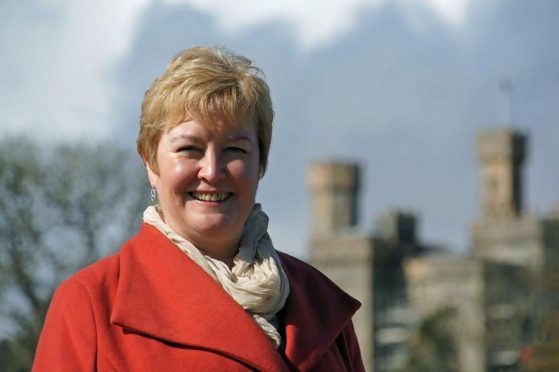An urgent review into emergency air transport for pregnant woman in the remote Highlands and islands is being called for – and has received the backing of a mum of premature twins born 50 miles apart in a road ambulance dash.
MSP Rhoda Grant is seeking action from health secretary Jeane Freeman, the Scottish Ambulance Service (SAS) and NHS Highland about the level of care provided for pregnant women in rural locations.
She has been given support from the twins’ mum and Caithness health campaign group, Chat.
The MSP made the plea after investigating the case of the mother who went into labour at 30 weeks, with the twins born miles apart on the way from the north to Raigmore Hospital in Inverness.
She has called for a risk assessment to be carried out on emergency transfers and that a suitable aircraft be made available for such incidents.
The MSP said: “I would sum up the situation as this – for any woman in labour and needing emergency help going by road ambulance is really the only option and air transfer is almost a non-starter.
“Most people believe that an air ambulance is still an option, when the truth is that it can hardly ever be used due to the constraints of the helicopter and the risks associated with giving birth in the air.”
Mrs Grant discovered that the ScotSTAR service, run by SAS, does not have obstetric/midwifery staff. A pregnant woman will not be airlifted unless her child or children have been born. The MSP is now asking Ms Freeman if this gap can be filled.
She stressed front-line staff involved in the twins’ case were excellent, but she was worried about the implications for other pregnant women.
The mother of the twins, who wants to remain anonymous, is supporting Mrs Grant’s campaign for a review, as is campaign group Chat.
Vice-chairman Ron Gunn said: “It is now apparent that in an emergency situation pregnant mothers cannot rely on air transportation. The only option left is a two-hour transfer by road ambulance.”
A Scottish Ambulance Service spokeswoman said: “We use the highest standards of clinical expertise to judge whether it is safe to transfer patients via air ambulance in complex situations like this – our review of this case highlighted that the correct procedures, in the best interests of the patient, had been followed.
“Transferring any patient in the advanced stages of labour via helicopter potentially places the lives of patients at risk and this is appropriately assessed on a case by case basis. In this case the helicopter was deployed to ensure specialist neo-natal care was available to transfer the twins following their birth.”
NHS Highland has told the MSP there was support from consultants using video conferencing from Raigmore Hospital, but a spokesman did not wish to comment further.
Health Secretary Jeane Freeman said: “It’s essential all women in Scotland, including those in more remote and rural areas, receive a safe, high-quality service from our NHS.
“There are a number of factors that must be taken into account when considering the transfer of pregnant women by road or by air.
“Decisions on transfer are made by clinicians, in discussion with the Scottish Ambulance Service, with patient safety as their number one priority.
“As part of the implementation of The Best Start review of maternity and neonatal services, we have convened a transport expert group, comprising maternity and neonatal clinicians and representatives from the Scottish Ambulance Service and ScotSTAR (Scottish Specialist Transport and Retrieval).
“This group will examine the transfer of pregnant women and newborn babies, with a specific focus on remote and rural transfer.”
I don’t want any other mother going through what I went through
The mother of twins was only 30 weeks pregnant when her waters broke in November last year.
She made her way to Caithness General Hospital where she was told she should go to Raigmore Hospital in Inverness by ambulance.
Her contractions became stronger near Golspie and the two midwives on board took the decision to stop at the local hospital. Shortly afterwards, at 10.30pm, her first child was delivered in a breech birth.
The air ambulance and coastguard were contacted, but it was decided it would take too long and the ambulance journey to Inverness resumed.
Her second baby was induced at Raigmore and her twins were transferred to the Special Care Baby Unit.
The mother, who wants to remain anonymous, said yesterday she had believed the health service mentioned air transport as a back-up when the maternity service in Caithness was changed to a midwife-led unit and at-risk mothers were sent to Raigmore to give birth.
She said: “Why, if the NHS is saying that the helicopter is not suitable for premature labouring women, did the team in my case spend two hours trying to get a helicopter when I had already given birth to one twin?
“A helicopter was sent out but was unable to land. If it’s stated it’s not suitable then it should have never been sent or requested.
“I’ve supported Rhoda investigating this further because I don’t want any other mother going through what I went through, although the staff who helped me at the time were fantastic.”
